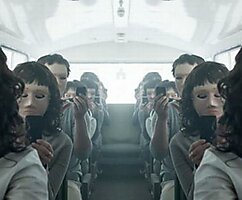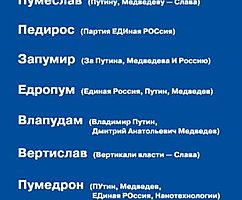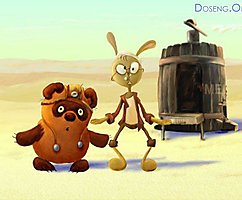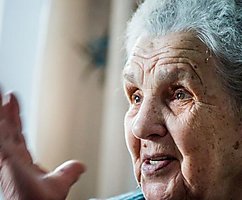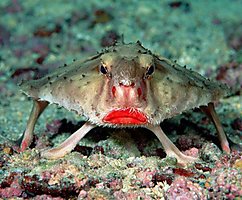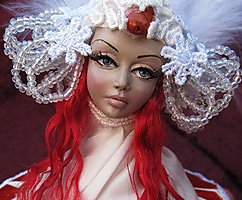Andrey Maksimov: the Kids who ordered grow up to be slaves
 Bashny.Net
Bashny.Net
The book of Andrei Maximov's "How not to become the enemy of your child" is written in an unusual genre — "statements". Sometimes controversial, sometimes violent. But talking about the main: problems in relations with children should address adults. This book is like a conversation, and the reader to their own conclusions, how not to become the enemy of your child. Each Chapter is a philosophical parable, which is interesting to read as a family.
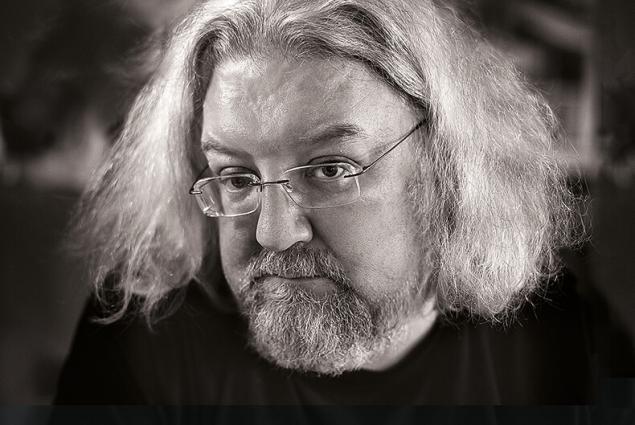
14 tips on how to raise a happy child, from Andrew Maximov
1. Children are people too
For many centuries, and until recently, under the upbringing of children was understood to be a kind of special relationship with children. It has developed from the belief that children are very different from us adults. Such attitude to children is humiliating. And the process of understanding that children are people too, requires a large amount of time.
"Slowly, hesitantly, reluctantly, for centuries, we move to understanding the apparently obvious truth: the child is an independent person. Not our continuation. Not an appendage to us. Not an alien with whom it is necessary to build obscure for earthly life relationship. But — people. Which must communicate exactly how we communicate with other people."
2. The arrogance of the adult towards the child
Adults look back on some experience and believe that this experience does not have children. This is not so. Children do not have our experience, because it is their own.
"Perhaps we are not convinced that the older the person becomes, the it is, roughly speaking, is worse? Here this is the way of naturalness and negresse to the cynical view of the world and the manipulation of others (in fact, the deterioration of his personality) is what we call life experiences".
While we can learn from children of their experience of forming relationships with nature, their simplicity and concreteness judgments. We must, if not accept, then at least respect this experience and try to understand our children.
3. The child's health or a good relationship
Children also want to be healthy, but are not always able to correctly assess the situation. Therefore the task of parents — talk to child, explain to him he may be banned, but not from the command positions, and respectful of the interests of the other person. Hard bans provoke the child to their violation.
"Our good relationship to the child (if someone more like our love for him) is tested and tempered in situations where they help the child to understand truths that cannot be "put" into him".
4. How to find a common language with the child
Communication should not be educational process. Showing sincere interest in the interlocutor, speaking without pedagogical purposes, without resorting to lies, you make contact with the child in fun for both sides of the process. The goal of communication should be the desire to understand the interlocutor.
"Communication is the result of our relationship with the child. If anything — evaluation of our relationship. That's how our verbal contact with the little man, we judge how generally formed our life together."
5. The child is not our property
Sometimes the closest person becomes the enemy and spoil the life of someone he loves. Between the child and the mother, there is some mysterious, incredible power of connection. This does not mean that the child is the sequel to mom. On the contrary, the mother should make every effort in order not to create around the child a reality and release it into its own separate, independent life.
"I absolutely know that if the mother does not understand that she had a baby not for myself but for the world — it dooms their child on suffering."
6. How to grow from a child of the Creator
When the child is allowed to make their own decisions, he learns to know himself. If the parents are projecting on your child's Outlook on life, he becomes dependent on someone else for him in the world. If a child creates their own reality, he becomes a Creator of your own life. The task of parents is to discern what is inherent in the child.
"Children who constantly orders that grow up to be slaves. Do those parents try to understand — there is a serious chance to become the Creator. The easy child — this is not a free child."
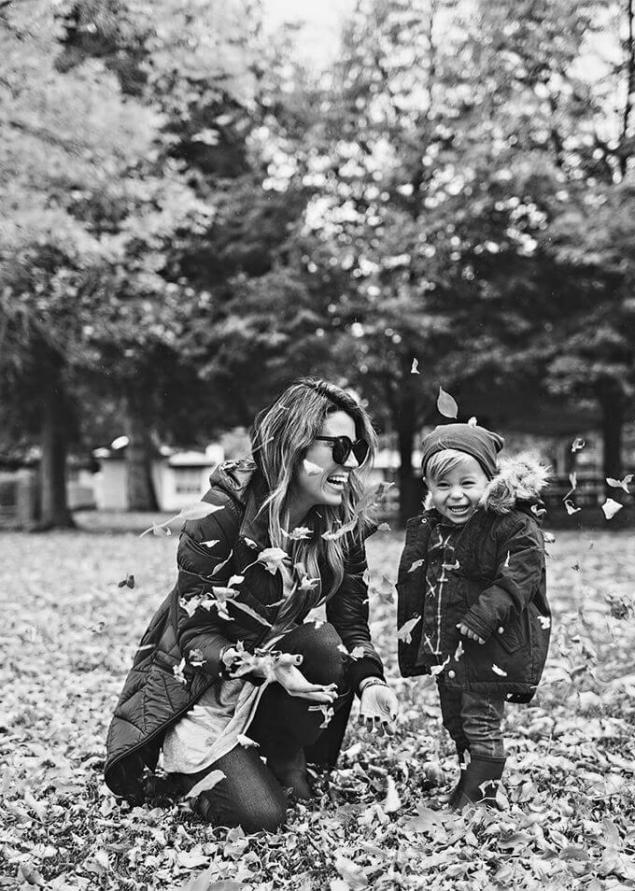
7. Children and vocation
A life makes the child. Only by creating himself, a person can be happy. Imposing your child a choice, we consciously deprive him of the opportunity. Parents can help the child find his vocation. Is attentive to those types of activities that the child likes to do.
"If in childhood a person has had many lessons that have brought him joy, he will be able to choose to whom wants to dedicate his life. But if such classes did not exist — then the problem is".
8. The children and the school
Often parents assess their child based on the school diary, in which the rating and comments reflect the relevant knowledge of the conventional system. But knowledge is not all the information that the child learned in school, it is only the knowledge that he has learned to apply and use.
"School teaches people to learn. Not taught to think. Does not welcome independent thinking. And in this sense the notorious exam was a natural result of the development of our, so to speak, of educational thought".
Children do not want to learn in such a system. Im not lazy, im just bored, if the teacher could interest in his subject. For parents exit in search of a suitable for the child's school, or at least the first teacher who does not discourage a thirst for knowledge. If this is not possible, and even then in a relationship children-school parents should always take the side of children.
"To deal with the child's education by remembering that even a good rating is not a criterion that the child is educated and knowledgeable".
"The option for parents is to try to find a common language with the teacher. If this is successful — the life of your child in school will improve considerably".
9. Children and leisure
When adult is resting, he does it as he wants. When children play, adults often impose their own idea about their leisure. Adults really want to take advantage of even children's free time. But the children as well as adults, need to rest, they have the right to choose for themselves how to relax.
"It is not necessary to protect the child from his rest. And we must try to raise the child so that his spare time should not have caused parents to fear".
10. About love and friendship
Children's feelings just as serious as adults. Therefore, the demand from parents for understanding and assistance. Influence the choice of the child can only trust by talking and example.
11. Children and money
The right attitude to money, it is that relation which is accepted in your family. Baby he study, looking at how to dispose of the money of his parents.
12. Children and work
"The most important thing we must explain to the child: the work is meaningful work, which give a person the satisfaction and pleasure; in any worst case, it is imperative to find some sense."
13. Children and art
In relation to art child shows his freedom of choice and independence from adults. The task of parents — to familiarize the child with different types and genres of art and discuss what they saw or heard.
Lyudmila Petranovskaya: Most theories of education.Shame and fear: WHAT are we passing on to their children
14. Children and education
The kids have no education, and love. "If we consider education as helping the child in solving his problems, then this is a very serious chance to be with her baby closer."
The main task of parents in the upbringing of the child is to help him grow as a Creator and a free man.published
Author: Andrey Maksimov
Source: vk.com/id5803196?w=wall-48978_27631

14 tips on how to raise a happy child, from Andrew Maximov
1. Children are people too
For many centuries, and until recently, under the upbringing of children was understood to be a kind of special relationship with children. It has developed from the belief that children are very different from us adults. Such attitude to children is humiliating. And the process of understanding that children are people too, requires a large amount of time.
"Slowly, hesitantly, reluctantly, for centuries, we move to understanding the apparently obvious truth: the child is an independent person. Not our continuation. Not an appendage to us. Not an alien with whom it is necessary to build obscure for earthly life relationship. But — people. Which must communicate exactly how we communicate with other people."
2. The arrogance of the adult towards the child
Adults look back on some experience and believe that this experience does not have children. This is not so. Children do not have our experience, because it is their own.
"Perhaps we are not convinced that the older the person becomes, the it is, roughly speaking, is worse? Here this is the way of naturalness and negresse to the cynical view of the world and the manipulation of others (in fact, the deterioration of his personality) is what we call life experiences".
While we can learn from children of their experience of forming relationships with nature, their simplicity and concreteness judgments. We must, if not accept, then at least respect this experience and try to understand our children.
3. The child's health or a good relationship
Children also want to be healthy, but are not always able to correctly assess the situation. Therefore the task of parents — talk to child, explain to him he may be banned, but not from the command positions, and respectful of the interests of the other person. Hard bans provoke the child to their violation.
"Our good relationship to the child (if someone more like our love for him) is tested and tempered in situations where they help the child to understand truths that cannot be "put" into him".
4. How to find a common language with the child
Communication should not be educational process. Showing sincere interest in the interlocutor, speaking without pedagogical purposes, without resorting to lies, you make contact with the child in fun for both sides of the process. The goal of communication should be the desire to understand the interlocutor.
"Communication is the result of our relationship with the child. If anything — evaluation of our relationship. That's how our verbal contact with the little man, we judge how generally formed our life together."
5. The child is not our property
Sometimes the closest person becomes the enemy and spoil the life of someone he loves. Between the child and the mother, there is some mysterious, incredible power of connection. This does not mean that the child is the sequel to mom. On the contrary, the mother should make every effort in order not to create around the child a reality and release it into its own separate, independent life.
"I absolutely know that if the mother does not understand that she had a baby not for myself but for the world — it dooms their child on suffering."
6. How to grow from a child of the Creator
When the child is allowed to make their own decisions, he learns to know himself. If the parents are projecting on your child's Outlook on life, he becomes dependent on someone else for him in the world. If a child creates their own reality, he becomes a Creator of your own life. The task of parents is to discern what is inherent in the child.
"Children who constantly orders that grow up to be slaves. Do those parents try to understand — there is a serious chance to become the Creator. The easy child — this is not a free child."

7. Children and vocation
A life makes the child. Only by creating himself, a person can be happy. Imposing your child a choice, we consciously deprive him of the opportunity. Parents can help the child find his vocation. Is attentive to those types of activities that the child likes to do.
"If in childhood a person has had many lessons that have brought him joy, he will be able to choose to whom wants to dedicate his life. But if such classes did not exist — then the problem is".
8. The children and the school
Often parents assess their child based on the school diary, in which the rating and comments reflect the relevant knowledge of the conventional system. But knowledge is not all the information that the child learned in school, it is only the knowledge that he has learned to apply and use.
"School teaches people to learn. Not taught to think. Does not welcome independent thinking. And in this sense the notorious exam was a natural result of the development of our, so to speak, of educational thought".
Children do not want to learn in such a system. Im not lazy, im just bored, if the teacher could interest in his subject. For parents exit in search of a suitable for the child's school, or at least the first teacher who does not discourage a thirst for knowledge. If this is not possible, and even then in a relationship children-school parents should always take the side of children.
"To deal with the child's education by remembering that even a good rating is not a criterion that the child is educated and knowledgeable".
"The option for parents is to try to find a common language with the teacher. If this is successful — the life of your child in school will improve considerably".
9. Children and leisure
When adult is resting, he does it as he wants. When children play, adults often impose their own idea about their leisure. Adults really want to take advantage of even children's free time. But the children as well as adults, need to rest, they have the right to choose for themselves how to relax.
"It is not necessary to protect the child from his rest. And we must try to raise the child so that his spare time should not have caused parents to fear".
10. About love and friendship
Children's feelings just as serious as adults. Therefore, the demand from parents for understanding and assistance. Influence the choice of the child can only trust by talking and example.
11. Children and money
The right attitude to money, it is that relation which is accepted in your family. Baby he study, looking at how to dispose of the money of his parents.
12. Children and work
"The most important thing we must explain to the child: the work is meaningful work, which give a person the satisfaction and pleasure; in any worst case, it is imperative to find some sense."
13. Children and art
In relation to art child shows his freedom of choice and independence from adults. The task of parents — to familiarize the child with different types and genres of art and discuss what they saw or heard.
Lyudmila Petranovskaya: Most theories of education.Shame and fear: WHAT are we passing on to their children
14. Children and education
The kids have no education, and love. "If we consider education as helping the child in solving his problems, then this is a very serious chance to be with her baby closer."
The main task of parents in the upbringing of the child is to help him grow as a Creator and a free man.published
Author: Andrey Maksimov
Source: vk.com/id5803196?w=wall-48978_27631
Tags
See also
Why adult children don't respect their parents
49 out of 50 children may go with strangers! LEARN this manual with the kids!
Educating yourself in the child's upbringing
The message must read for every adult
Without punishment and cry: 5 books about tantrums, discipline and education
The 7 most common childhood whims and how to deal with them
Parents are the basic program in a child's life. part 2
Andrey Maksimov: Children – this is a test that parents hand over to God
Parents and children: 5 hard truths that must be recognized
